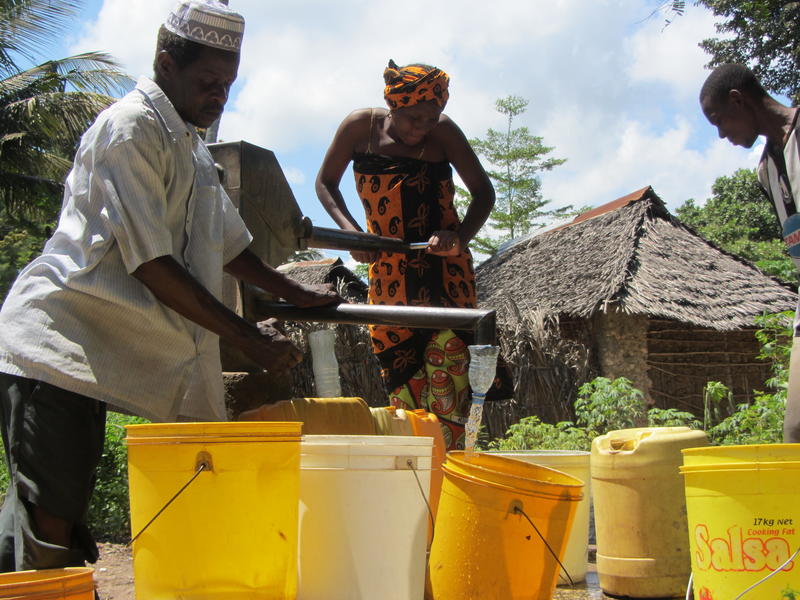Interdisciplinary research on Smart Handpumps by the University of Oxford is improving water security for people in Kenya and Bangladesh as part of DFID-funded research programme, REACH water.

Source: Tim Foster/REACH Programme
Recent work by researchers at the School of Geography and the Environment and the School of Engineering has shaped policy reform with impacts potentially benefiting millions of rural Kenyans in the future.
Pioneering technology that remotely detects handpump motion now informs local maintenance companies, which are able to respond more quickly to failures. Led by Dr Rob Hope, the research in Kitui County, Kenya, has significantly reduced downtime for handpumps, from 30 days to fewer than three. The increased levels of service also benefit women and girls, who are often responsible for collecting water and finding alternate sources when handpumps fail.
The handpumps work by using a low-cost accelerometer, designed by Oxford researcher Patrick Thomson, which measures the movement and vibration of the handpump when in use. The device is also able to send data to local companies using the mobile network: the handpump can tell you when it’s not working.
In order to provide the institutional support structure to monitor and maintain the pumps, a professional maintenance company, Fundifix Ltd, was set up. The company is financed by a new Water Services Maintenance Trust Fund supported by water users, investors and the government, which pools financial risk to ensure that no one is left behind.
The company receives data from community water supplies serving over 40,000 rural Kenyans in communities, schools and hospitals. Fundifix works on performance based contracts through which local companies guarantee to repair infrastructure within three days. The provision of smart meters mean that handpumps can be continuously monitored and prompt a faster response from local mechanics.
The partnership between the School of Geography and Environment and Professor David Clifton at the Department of Engineering Science is applying machine learning methods to predict handpump failure and shallow aquifer depth. This work has been part of a wider collaboration with UNICEF in east and southern Africa reflecting concerns with sustainability of water supplies.
The smart handpump technology is now being tested in Bangladesh in partnership with UNICEF, government and national research partners. A recent blog and policy brief reports on the emerging work.
The UN’s sustainable development goal for water expressly states the aim of ‘universal and equitable access to safe and affordable drinking water’ by 2030. By combining technological innovation with institutional coordination and sustainable financing, the REACH team have been able to achieve a system that is working to deliver drinking water for all.
Research funded by: DFID, UNICEF, NERC/ESRC/DFID